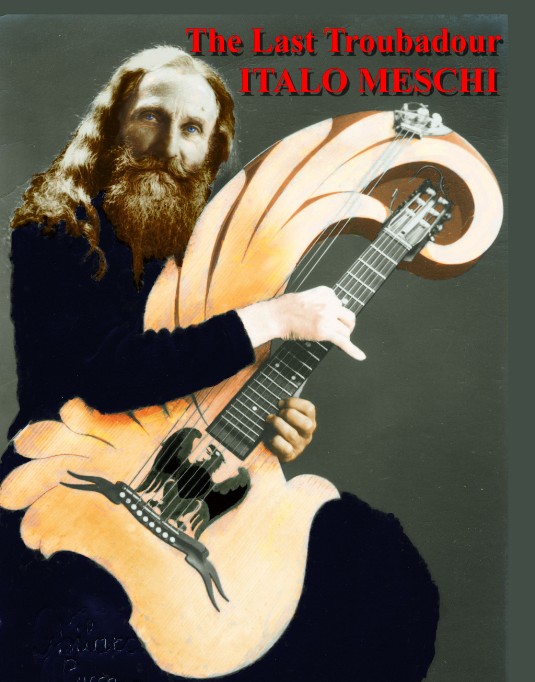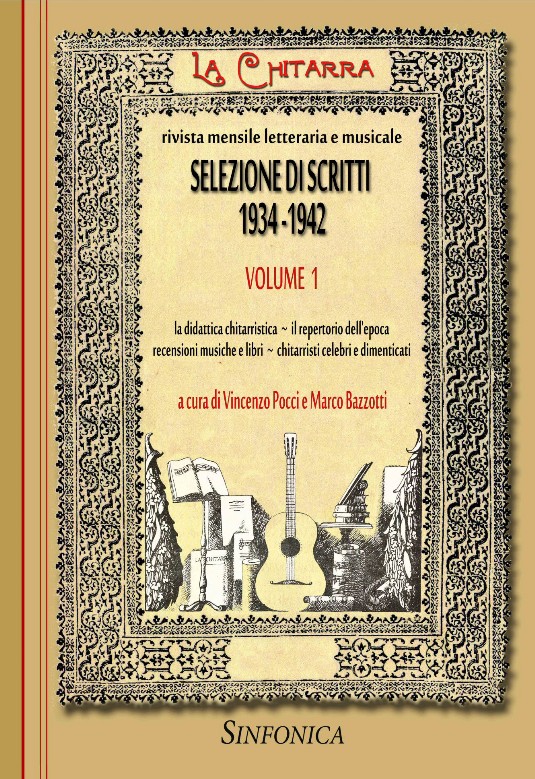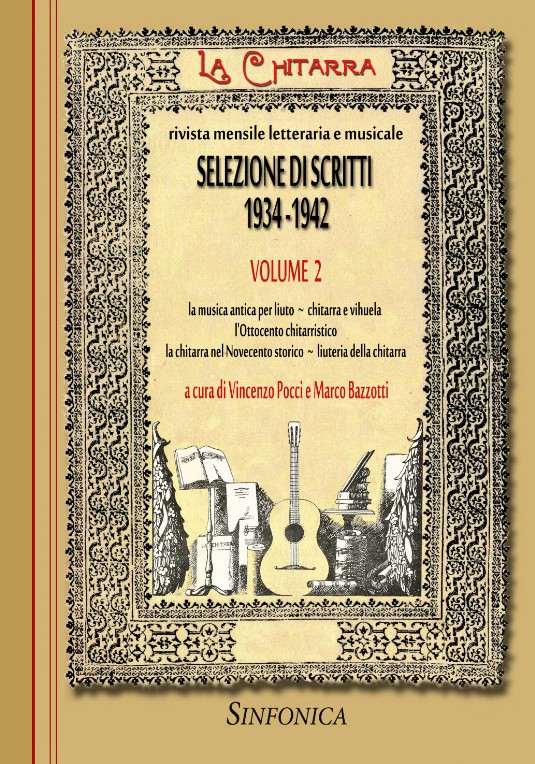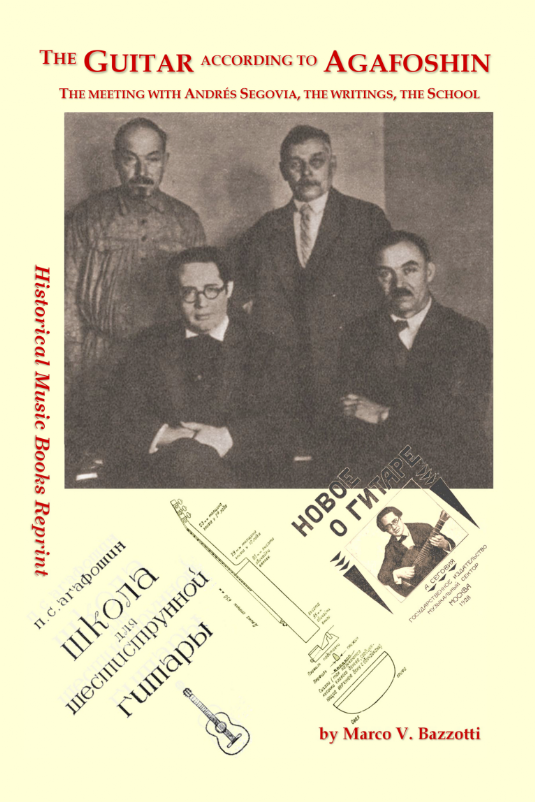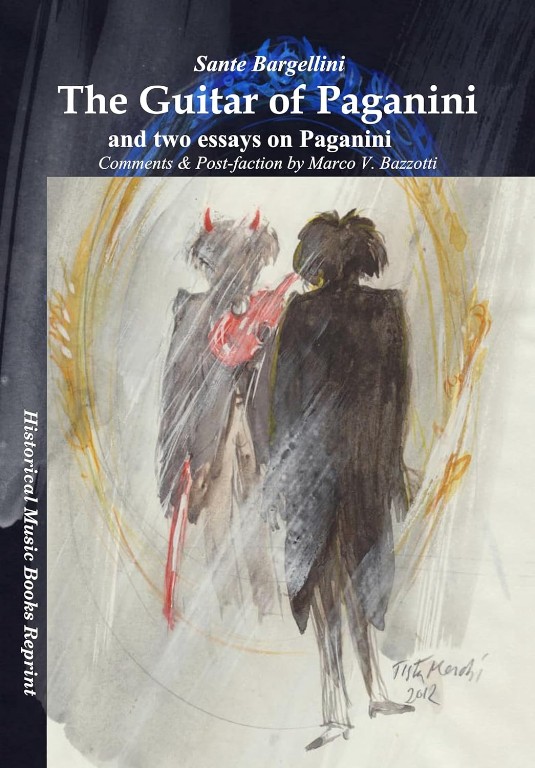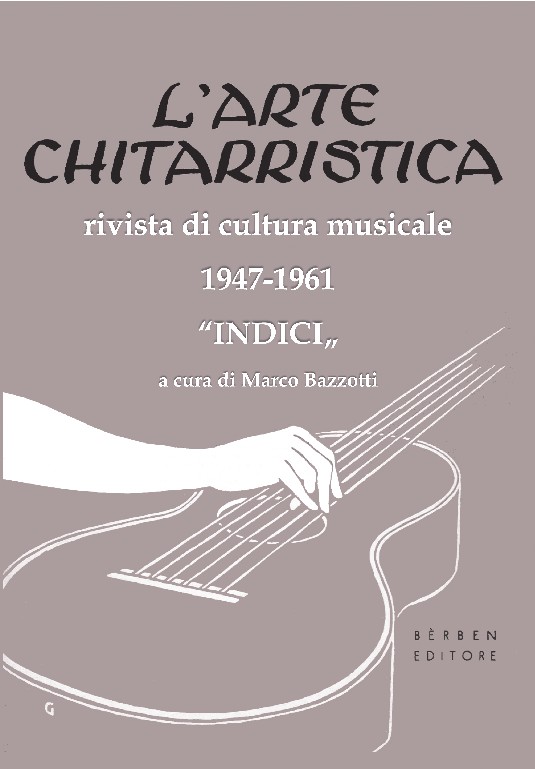BOOKS
EDITIONS
Printed & Downloadable Books
" Pëtr S. Agafošin, hailing from the Russian province of Pirogovo (Ryazan) in 1901, bid farewell to the Russian guitar during his time in Moscow, embracing the Western guitar. His pivotal encounter with Andrés Segovia in February 1927 marked a turning point, as he emerged as the torchbearer for the Spanish instrument within the Soviet Union, challenging entrenched traditions. The allure of his “Memoirs” extends beyond offering firsthand insights into Segovia's stay in Russia; it lies in the rich tapestry of encounters with many musicians and artists throughout his life, including notable Europeans musicians.
In Russia, the figure of Pëtr Spiridonovich Agafoshin (1874-1950) is undeniably linked to Andrés Segovia, historically pioneering Western guitar in his country. On revisiting his compiled writings for this edition, with the controversies they sparked, we gain insight into the significant rupture that unfolded within Soviet society. This divide was particularly poignant among guitar enthusiasts, as they grappled with the jolting shift from the traditional Russian seven-string guitar to the Western six-string variant. The transformation, starting subconsciously, and later consciously led by Segovia, constituted a true revolution in Soviet society. The systematic rupture of the centuries-old tradition that saw in Soviet Russia of the 1920s the almost exclusive adoption of the guitar tuned in thirds and with seven strings.
According to sources, A. Segovia gave Agafoshin the title of "the best guitarist in Moscow,", thus paving the way for him in later years. In 1930, Agafoshin accepted an offer to lead the six-string guitar class at the Regional Music and Pedagogical Technical School in Moscow and then at the Moscow Conservatory.
At the core of his artistic effort lies the extensive method, "School for the Six-String Guitar," divided into four parts. Progressing in a logical sequence, it masterfully develops guitar polyphony according to the Segovian repertoire.
This volume includes the first English translation of his works: "News about the Guitar" (1928), "The Six and Seven String Guitar" (1931), excerpts from "School for the six-string guitar" (1934-38), and "My Memoirs" (1945). Complemented by a Preface, a Chronology of his life, an invaluable “Index of names,” and an expansive bibliography.""The strange, almost diabolical in Paganini’s figure looms over this novel. It fills it with a fearful mystery in contrast to the lively surroundings of its setting, admirably described by Bargellini. The novella touches the unreal because of the central character’s personality. The unreal, the fantastic does not lie on the outside, that is in the writer’s imagination, but within the main character’s soul. It comes out, pervades and propagates out of Luciano Paulin’s frightened spirit with such a haunting force that at a certain point it overtakes us with fear. This is something new.
Here is a book that deserves the best of luck."
Luigi Pirandello, 1906
[From the Post-faction by Marco V. Bazzotti]
"Even a note that escaped him seemed to him a priceless asset irretrievably lost, forever."
"... no one should ever believe that he had touched the extreme limits of art, the edges of which, like those of the blue horizon that circles the earth, flee away as he goes."
Sante Bargellini, 1905
Book is entirely in English language.
Link Amazon: amazon.com/
Guitar-Paganini-essays
... L'arte Chitarristica Rivista di Cultura Musicale 1947-1961
Analytical Indexes - Facsimiles from the magazine (12 Tables)
The journal L’arte chitarristica / Rivista di cultura musicale (Guitar art / Music culture magazine) is the continuation in the immediate post-war period of the editorial project of La Chitarra / literary and musical monthly magazine (1934-1942). It was continuously active from 1947 to 1957, and then again from 1959 to 1961.
In all, 61 files were published with over one thousand and two hundred pages. Attached to each issue there was an original guitar music.
In all, 61 files were published with over one thousand and two hundred pages. Attached to each issue there was an original guitar music.
The analytical indexes of the journal are as follows:
- chronological index
- analytical index by author
- index of music
- index of the reviewed guitarists
- index of obituaries
The facsimiles of the magazine include 12 full-page tables.
The extracts from the magazine include:
- Articles about Luigi Mozzani, Emanuele Pignocchi, Giovanni Murtula, Alessandro Vizzari, Wilfrid Appleby, Andrés Segovia, Joaquin Rodrigo, Ida Presti, Elena Padovani, Maria Luisa Anido, Narciso Yepes, Alirio Diaz, Julian Bream.
Foreword by Marco V. Bazzotti
Link on Amazon.com: Arte-Chitarristica-1947-1961 [color version on coated paper]
The Last Troubadour: Italo Meschi (1887-1957)
by Riccardo Sarti, Tista Meschi, Marco Bazzotti
Date: 2017, Edition: Createspace Independent Pub
Link Amazon: The-Last-Troubadour-Italo-Meschi-1887-1957
Preview in Academia.edu: Italo_Meschi_L'Ultimo_Trovatore_Preview
La Chitarra, rivista mensile letteraria e musicale
La Chitarra, monthly magazine with music insert
La Chitarra, monthly magazine with music insert
La Chitarra 1934-42: 3 volumes + 2 music anthologies
Italian only
LA CHITARRA - rivista mensile letteraria e musicale, scritti e musiche 1934-1942
a cura di Vincenzo Pocci e Marco Bazzotti.
Selezione di scritti 1934-42, Vol. 1
La Chitarra rappresenta storicamente la prima rivista moderna interamente dedicata allo strumento a sei corde: essa nacque a Bologna nel 1934 e rimase attiva fino alla fine del 1942, pur tra evidenti difficoltà.
Gli articoli qui selezionati, completi di tutte le immagini originali, sono raccolti tematicamente e commentati dai curatori. La loro lettura fornisce un quadro storico di notevole interesse musicologico quanto di indubbio valore didattico.
Lo stile nobile della narrazione, i dialoghi a distanza e le polemiche tra i chitarristi dell'epoca, tuttora affascinano e insieme aiutano alla riflessione sulla storia della chitarra come vista dagli occhi dei contemporanei, dal suo timido affacciarsi alle soglie del '900 alla sua piena affermazione come strumento da concerto.
Selezione di scritti 1934-42, Vol. 2
In questo secondo volume sono contenuti i saggi sulla storia dello strumento, scritti dai suoi collaboratori più attivi: M. R. Brondi, Rezio Buscaroli, Romolo Ferrari, Emilio Pujol, Giuseppe Raspelli, Eleuterio F. Tiscornia e altri, tutti riveduti dai curatori alla luce delle più recenti acquisizioni musicologiche. Segue un panorama internazionale con notizie d'attualità per l'epoca e chiude il volume gli articoli sulla liuteria della chitarra, con contributi di Ugo Baldini, Arnaldo Casassa e Giulio Vio, tra cui la genesi e i risultati del concorso di liuteria indetto dalla rivista nel 1937.
Gli articoli qui selezionati sono completi di tutte le immagini originali e ampiamente commentati dai curatori (con oltre 300 note a fondo pagina).
Indici Vol. 3 (Indici e facsimili)
A completamento dei due primi volumi con la selezione degli scritti, questo volume affronta il delicato compito dell'indicizzazione dell'intero lascito della rivista, ovvero delle sue oltre 1100 pagine letterarie e 250 musicali.
All'indice cronologico, seguono numerosi indici analitici (degli inserzionisti, per autore, delle musiche pubblicate, delle recensioni di musiche e libri, dei chitarristi recensiti e dei necrologi), ove sono stati corretti errori di stampa e attribuzioni nei casi dubbi.
Strumento agevole per una lettura informata, adatta sia allo studioso più esigente di oggi come al ricercatore, il volume è arricchito da 32 tavole con facsimili tratti da «La Chitarra» e da altre riviste che la citarono. Completa il quadro generale l'accesso online all'indicizzazione con ricerca, e trascrizione completa, delle pagine della rivista storica, tratte da archivi privati.
Selezione di 24 musiche per chitarra 1934-1942 Vol.1
Le musiche qui raccolte e ripubblicate in veste moderna rappresentano una selezione di opere originali per chitarra tratte dagli spartiti allegati alle pubblicazioni de «La Chitarra rivista musicale e letteraria» attiva dal 1934 al 1942.
Musiche di Anonimo, J. Štockmann, G. da Lisca, Evandro Conte di Campello, Frate Cassio Gentili, A. Amici, M. Llobet, M. Biagi, L. Portalupi, L.-J. Rousseau, G. De Martini, G. Ferri, G. Rostagni, R. Vaccari.
Selezione di 24 musiche per chitarra 1934-1942 Vol.2
Gli allegati musicali alla rivista mensile La Chitarra (1934-42) presentavano musiche di autori contemporanei e antichi: la nostra scelta è caduta su una rosa di chitarristi e compositori attivi durante gli anni Trenta e Quaranta, alcuni dei quali vedono riedite le proprie opere per la prima volta. Tra le musiche qui raccolte spiccano senz’altro la Serenata di Enzo Masetti, dedicata a Riccardo Vaccari e le nove opere per chitarra del Dott. Giovanni Murtula, a cui si affianca e il Preludio di Mario Sommadossi, noto medico chirurgo di Fiera di Primero (Trento).
Musiche di Giuseppe Farrauto, Renzo Chiodi, Giorgio Pezzoli, Benedetto Di Ponio, Enzo Masetti, Giovanni Murtula, Mario Sommadossi, Benvenuto Terzi, Primo Silvestri, Roberto Beccuti.
This historical prewar magazine was published since 1934 to 1942. A total of 94 issues came out, or 11 numbers for 8 years (from 1934 to 1941), plus 6 double numbers in the last year (1942).
The consistency of the magazine and its musical attachments is represented in the following table:
1934 .......... 148 pp. (Text) + 24 pp. (Music attachments)
1935 .......... 140 pp. (Text) + 25 pp. (Music attachments)
1936 .......... 96 pp. (Text) + 28 pp. (Music attachments)
1937 .......... 136 pp. (Text) + 28 pp. (Music attachments)
1938 .......... 136 pp. (Text) + 33 pp. (Music attachments)
1939 .......... 136 pp. (Text) + 28 pp. (Music attachments)
1940 .......... 136 pp. (Text) + 26 pp. (Music attachments)
1941 .......... 136 pp. (Text) + 24 pp. (Music attachments)
1942 .......... 72 pp. (Text) + 16 pp. (Music attachments)
1935 .......... 140 pp. (Text) + 25 pp. (Music attachments)
1936 .......... 96 pp. (Text) + 28 pp. (Music attachments)
1937 .......... 136 pp. (Text) + 28 pp. (Music attachments)
1938 .......... 136 pp. (Text) + 33 pp. (Music attachments)
1939 .......... 136 pp. (Text) + 28 pp. (Music attachments)
1940 .......... 136 pp. (Text) + 26 pp. (Music attachments)
1941 .......... 136 pp. (Text) + 24 pp. (Music attachments)
1942 .......... 72 pp. (Text) + 16 pp. (Music attachments)
La Chitarra 1934-42: 3 volumes + 2 music anthologies for a modern publication in 3 volumes.
